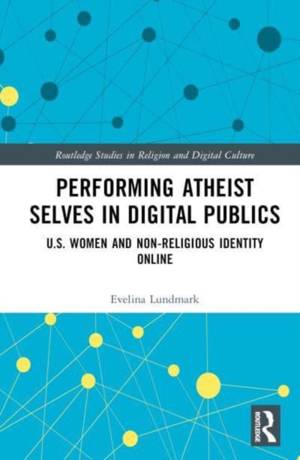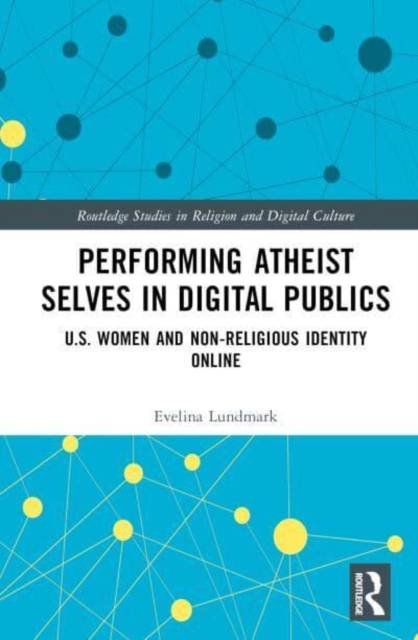
- Afhalen na 1 uur in een winkel met voorraad
- Gratis thuislevering in België vanaf € 30
- Ruim aanbod met 7 miljoen producten
- Afhalen na 1 uur in een winkel met voorraad
- Gratis thuislevering in België vanaf € 30
- Ruim aanbod met 7 miljoen producten
Performing Atheist Selves in Digital Publics
U.S. Women and Non-Religious Identity Online
Evelina LundmarkOmschrijving
This book considers how the non-religious self is performed publicly online, and how digital culture and technology shapes this process. Building on a YouTube case study with women vloggers, it presents unique empirical data on non-organized atheism in the United States. Lundmark suggests that the atheist self as performed online exists in tension between a perception of atheism as sinful and amoral in relation to hegemonical Christianity in the U.S., and the hyperrational, male-centered discourse that has characterized the atheist movement. She argues that women atheist vloggers co-effect third spaces of emotive resonance that enable a precarious counterpublicness of performing atheist visibility. The volume offers a valuable contribution to the discussion of how the public, the private, and areas in-between are understood within digital religion, and opens up new space for engaging with the increased visibility of atheist identity in a mediatized society.
Specificaties
Betrokkenen
- Auteur(s):
- Uitgeverij:
Inhoud
- Aantal bladzijden:
- 180
- Taal:
- Engels
- Reeks:
Eigenschappen
- Productcode (EAN):
- 9781032021676
- Verschijningsdatum:
- 24/02/2023
- Uitvoering:
- Hardcover
- Formaat:
- Genaaid
- Afmetingen:
- 156 mm x 234 mm
- Gewicht:
- 449 g

Alleen bij Standaard Boekhandel
Beoordelingen
We publiceren alleen reviews die voldoen aan de voorwaarden voor reviews. Bekijk onze voorwaarden voor reviews.











